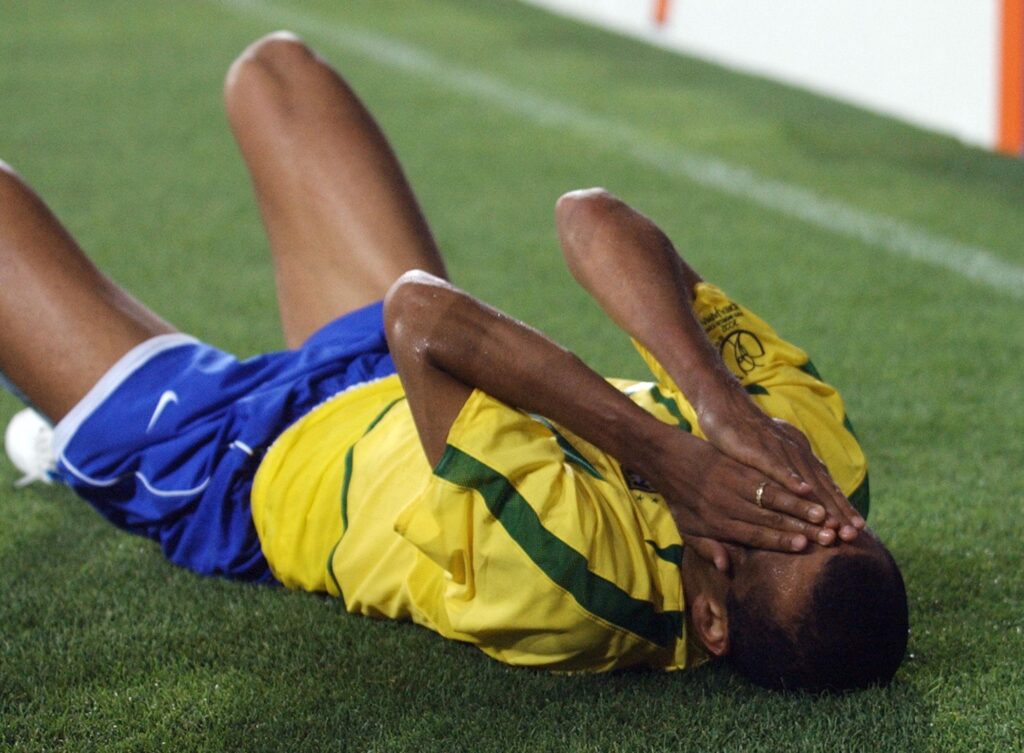Football,often heralded as the gorgeous game,has captivated millions across the globe for over a century. Yet, behind the glamour and glory lies a rich tapestry woven with moments of intense drama, bewildering decisions, and passionate debates.From contentious refereeing decisions to scandals that shook the very foundations of the sport, controversies have continuously shaped the narrative of football. This article delves into some of the most polarizing incidents in the history of the game, examining how these pivotal moments not only altered the course of matches but also influenced the sportS culture and governance. As we navigate through these flashpoints, we aim to provide insight into how they reflect the complexities of football—a game that remains as much about human emotion and judgment as it is about athletic prowess.
Table of Contents
- Unraveling the Impact of Varied Refereeing Decisions in Key Matches
- The Role of Media in Shaping Perceptions of Controversy
- Historical Context of officiating Errors and Their Long-Term Effects
- Recommendations for Enhanced Fair Play Through technological Advances
- To Conclude
Unraveling the Impact of Varied Refereeing Decisions in Key Matches
In the world of football,refereeing decisions can dramatically alter the outcomes of key matches,leaving fans and players alike debating their merit for years to come. In the heat of competition,a single call—or lack thereof—can shift the momentum,leading to jubilation or despair. Some of the most discussed instances include:
- The Hand of God: Diego Maradona’s notorious goal against England in 1986, where he handled the ball before scoring.
- The No Goal: Geoff Hurst’s controversial goal in the 1966 World Cup Final, which has been debated for decades regarding weather the ball crossed the line.
- The VAR revolution: The introduction of Video Assistant Referees in modern football has sparked intense discussions about its implementation and effectiveness,particularly in high-stakes matches.
Refereeing is as much an art as it is a science,yet the increasing scrutiny from fans and analysts has put important pressure on officiating bodies. As we review pivotal match statistics that demonstrate the impact of arbitrary decisions, we find disparities that draw attention to how consistency—or the lack thereof—can define a match’s legacy. The following table summarizes some key matches with contentious decisions:
| Match | Controversial Decision | Outcome |
|---|---|---|
| argentina vs. England (1986) | Maradona’s Handball Goal | Argentina won 2-1 |
| England vs. Germany (1966) | Hurst’s Second Goal | England won 4-2 |
| Chelsea vs. Barcelona (2009) | Non-Penalty Call | Barcelona advanced on aggregate |
The Role of Media in Shaping Perceptions of Controversy
the influence of media in the realm of sports, particularly football, cannot be understated. Media outlets—ranging from television networks to social media platforms—play a crucial role in not only disseminating information but also in framing the narratives that surround controversial moments in the sport.As an example,how a particular incident is reported can sway public perception considerably. Consider the following aspects:
- Framing of Events: The way in which a controversial decision is reported can lead to polarized views among fans and analysts alike.
- Focus on Personalities: Media often center attention on key figures involved,transforming them into symbols of the controversy.
- Repetition of Narratives: Continuous coverage can reinforce specific narratives, making them the accepted truths in public discourse.
Moreover,the advent of social media has further complicated this landscape,allowing instant commentary from fans,pundits,and players themselves. The viral nature of digital content means that a single controversial moment can spark widespread debate, often overshadowing the facts at hand. A recent analysis categorizes the impacts of such media dynamics:
| Impact | Description |
|---|---|
| Amplification | Key incidents receive heightened attention, leading to large-scale public discourse. |
| Polarization | Fans are frequently enough divided into camps, escalating tensions surrounding the controversy. |
| Duration | Continued media focus can prolong the life of a controversy beyond its natural relevance. |
Historical Context of Officiating Errors and Their Long-Term Effects
Throughout football’s storied history, officiating errors have often been at the heart of some of the game’s most controversial moments. From missed penalties to incorrect offside calls, these pivotal mistakes have led to heated debates and widespread criticism. Notable incidents include:
- The Hand of God (1986 World Cup): Diego Maradona’s infamous goal against England ignited discussions about human error in officiating.
- the Ghost Goal (2005): A contested goal in the FA Cup final raised questions about the effectiveness of goal-line technology, which remains a debated topic even today.
- VAR Controversies (2018 World Cup): the introduction of video assistant referees aimed to reduce errors but has incited further debate over interpretation and implementation.
The long-term effects of these officiating errors can be profound, influencing not only match outcomes but also team legacies and fan perceptions. A clear example is the way these mistakes have shaped rivalries and altered tournament trajectories, leading to lasting narratives in the football community. Below are some additional implications:
| Implications | Description |
|---|---|
| Player Careers | Controversial decisions can propel players to superstardom or overshadow their achievements. |
| club Reputation | Teams may be remembered for specific incidents rather than their overall contributions to the sport. |
| Fan Loyalty | Officiating errors can deepen fan loyalty or foster resentment towards the officials and governing bodies. |
Recommendations for Enhanced Fair Play Through Technological Advances
The evolution of technology has the potential to significantly transform the landscape of fair play in football. Innovations like VAR (Video Assistant Referee) and advanced goal-line technology have already begun to diminish the occurrence of glaring errors. However, to further enhance the integrity of the game, the following technological approaches could be considered:
- Enhanced Player Tracking Systems: Utilizing RFID and GPS technology to monitor player movements can provide real-time data that informs referees about fouls or offsides.
- Artificial Intelligence in Refereeing: Implementing AI to analyze match situations could deliver unbiased insights and aid referees in decision-making.
- Smart Ball Technology: Equipping footballs with sensors can accurately detect whether a ball has crossed the line, reducing disputes and clarifying scoring incidents.
Moreover, openness in decision-making processes can be bolstered through improved dialog channels between officials and broadcast media. A structured approach could involve:
| Implementation | Benefit |
|---|---|
| Live Decision Review | allows fans and players to understand referee decisions in real-time, minimizing frustration. |
| Fan Engagement Platforms | utilizes social media to provide insights and rationale behind key calls, fostering trust. |
To Conclude
As we reflect on the numerous controversial moments that have punctuated the history of football, it becomes clear that these instances are not merely footnotes in the annals of the sport, but pivotal events that have shaped its identity and evolution. From contentious refereeing decisions to high-stakes scandals, these incidents have sparked debates, inspired reforms, and occasionally divided fans.They serve as a reminder that football, while a source of joy and unity for millions, is also profoundly affected by the complexities of human nature and the pressures of competition.As the sport continues to evolve, it is crucial for governing bodies, players, and supporters alike to engage in open discussions about the ethical dimensions of the game. Understanding the past controversies allows us to navigate future challenges more effectively. In doing so, we not only preserve the integrity of football but also ensure that it remains a fair and thrilling spectacle for generations to come. As we turn the page to new chapters in football history, let us do so with a commitment to transparency, accountability, and respect for the beautiful game.





